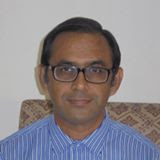The news item “Cognizant, Invensys forge alliance” (18 Jul 2009; Saturday; The New Indian Express) shows how manufacturing and technology management is gaining ground as a strategic alternative for driving growth in many verticals. While Cognizant has forged an alliance with Invensys, it is yet to be seen how they are going to create an ambience for Indian manufacturing to absorb PLM solutions wholeheartedly.
Being a strong believer in design thinking, here is my view about “Why PLM initiatives do not take off smoothly in India?”
It has been hypothesized that most Indian firms (educational institutes included) have a certain design deficit. As proposed earlier [see the research proposals by K. Sahu and B.P.Panda (2007, 2008)] the design deficit makes it hard for organizations to absorb soft technology. While research is underway to prove this hypothesis, PLM solution providers have to cover significant extra mile in developing viable partnership programs. Doing business through VARs (value-added resellers) as business partners may not be the right solution for most developers of PLM solutions. One key ingredient missing in these partnership programs is healthy collaborative-leadership governed by design thinking. As a result MoU objectives are pursued more in letter than in spirit. Hence they don’t yield the dividends that are expected.
The framework suggested in this paper titled “Using Meta Objects for Enhancing Supply Chain Collaboration” (Sahu et. al. 2002) can be extended to capture the Voice of the Stakeholder (VoS) and then subsequently augment the quality function deployment (QFD) process by facilitating collaborative involvement of the supply chain partners. This will vitalize the PLM initiatives for effective outcomes.


